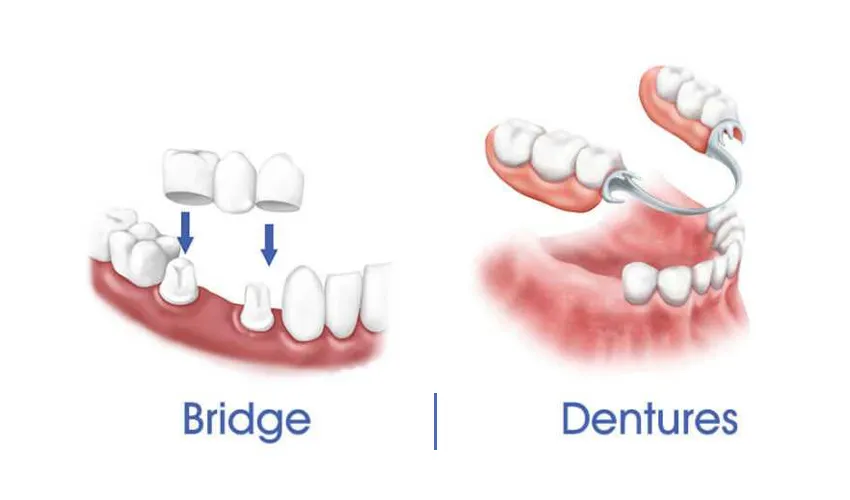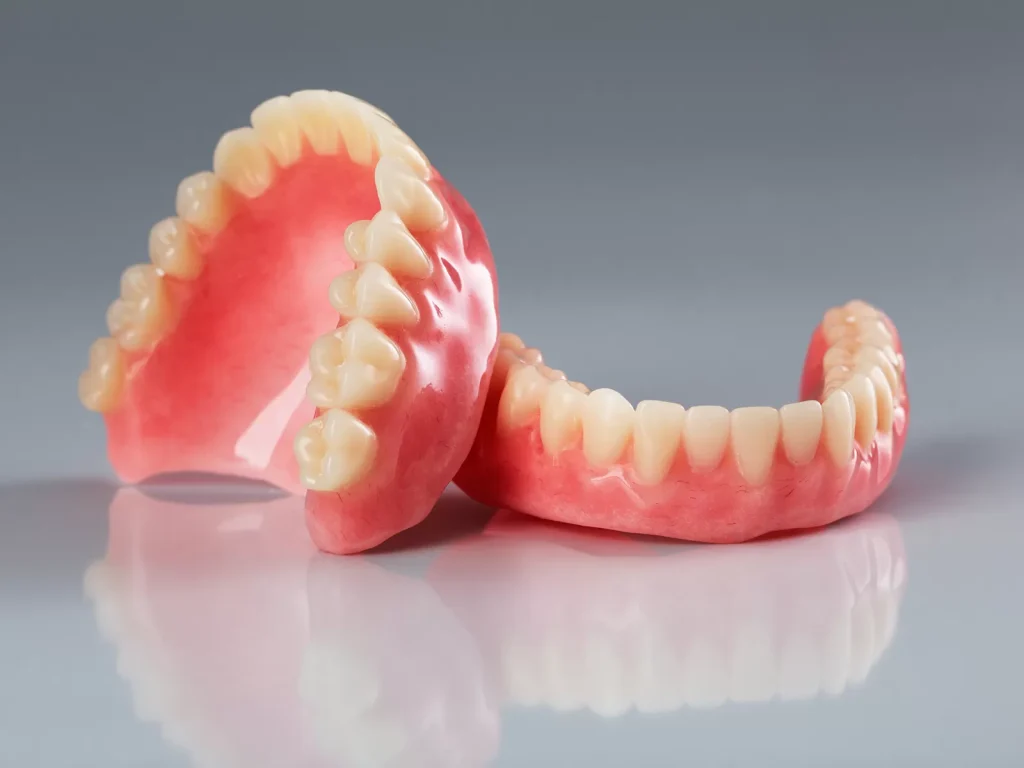WHAT IS Dentures?
Dentures, also known as dental prostheses, are removable artificial teeth and gums designed to replace missing natural teeth. They are used when a person has lost some or all of their teeth due to factors like dental decay, gum disease, injury, or aging. Dentures are a common and effective way to restore oral function and improve a person’s appearance and confidence.


TYPES OF DENTURES
Dentures are made of porcelain and acrylic resin. Porcelain dentures look more natural and match easily with the remaining teeth.
But porcelain, if dropped, will break easily and can wear down the remaining teeth hence, are better used as complete dentures rather than partial.
Acrylic resin dentures, on the other hand, are light in weight and easy to adjust. They fit properly and make the jaw movement smoother.
Types of Dentures:
Complete Dentures: These are used when all of a person’s natural teeth are missing. They consist of a full set of upper and lower artificial teeth on an acrylic base that resembles gum tissue.
Partial Dentures: Partial dentures are used when some natural teeth remain. They consist of artificial teeth attached to a metal framework or acrylic base, and they are designed to fill in the gaps created by missing teeth. Partial dentures can be removable or fixed (also known as dental bridges).
Immediate Dentures: Immediate dentures are inserted immediately after natural teeth have been extracted. They are a temporary solution and are often replaced with a permanent set of dentures once the mouth has healed.
Overdentures: Overdentures are designed to fit over a small number of remaining natural teeth or dental implants, providing added stability and retention.
The Denture Process:
Initial Consultation: The process begins with a consultation with a dentist or prosthodontist. The dentist assesses the patient’s oral health and discusses the best denture options.
Impressions: If dentures are recommended, impressions or molds of the patient’s mouth are taken to create custom-fitted dentures.
Fitting: During a subsequent visit, the patient tries on a trial set of dentures to ensure proper fit and comfort. Adjustments are made as needed.
Final Fitting: Once the fit and appearance are satisfactory, the final dentures are created and fitted.
Benefits of Dentures:
- Restoration of Function: Dentures allow individuals to speak and eat more comfortably and effectively when natural teeth are missing.
- Improved Aesthetics: Dentures can enhance the appearance of the smile, fill in gaps, and provide facial support.
- Boosted Confidence: Having a full set of teeth can improve self-esteem and confidence.
- Oral Health: Dentures prevent problems like shifting of remaining teeth and further bone loss in the jaw.
Considerations:
- Adjustment Period: It may take some time to adjust to wearing dentures, especially in the early stages. Eating, speaking, and wearing dentures will become more comfortable with practice.
- Maintenance: Proper care and regular dental check-ups are essential to ensure the longevity of dentures.
- Replacement: Dentures may need to be replaced or relined over time due to changes in the shape of the jaw or normal wear and tear.
Dentures are a tried-and-true solution for individuals with missing teeth, providing both functional and aesthetic benefits. Consulting with a qualified dentist or prosthodontist is essential to determine the most appropriate type of dentures and to ensure a proper fit and comfort.
